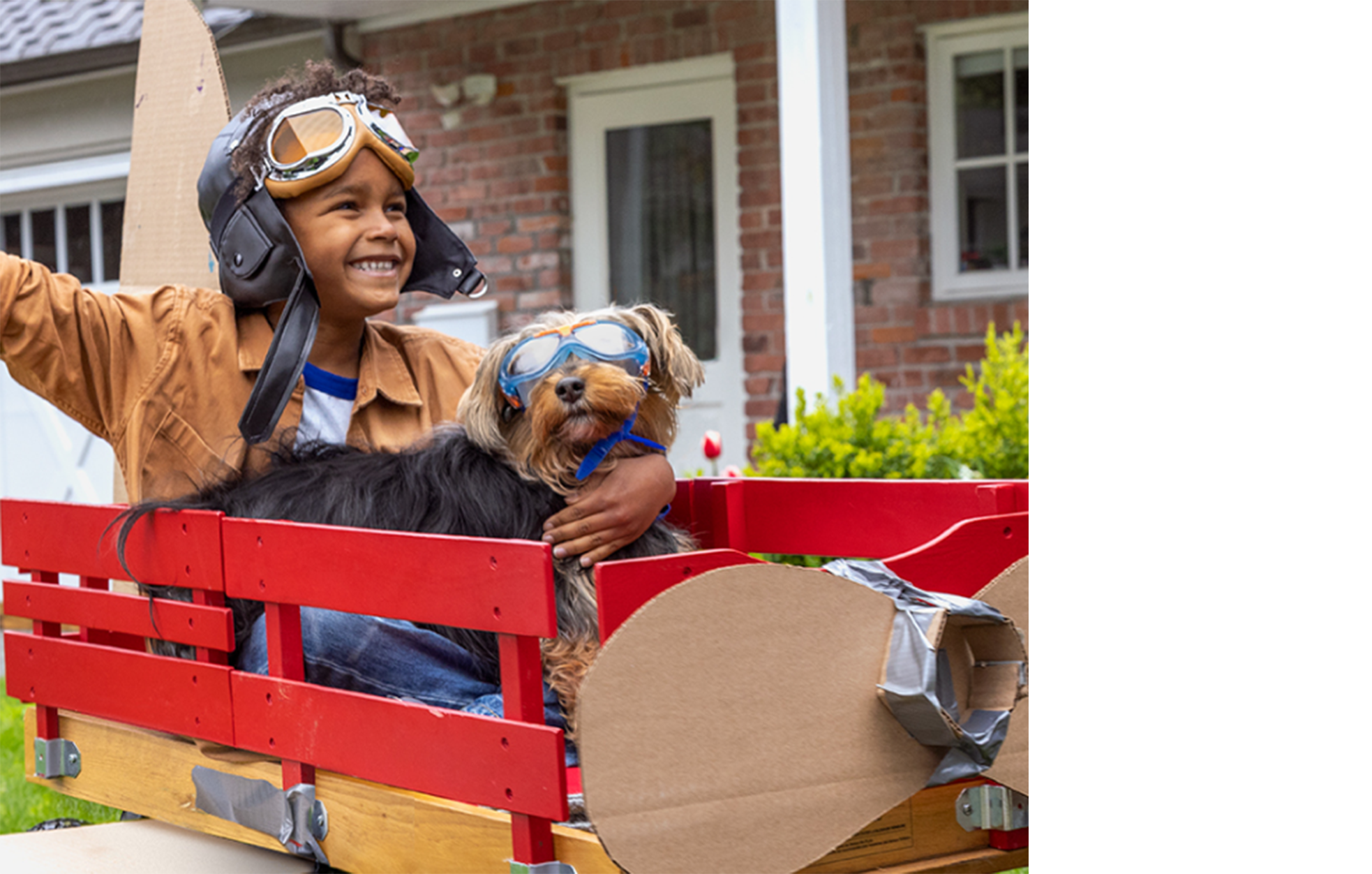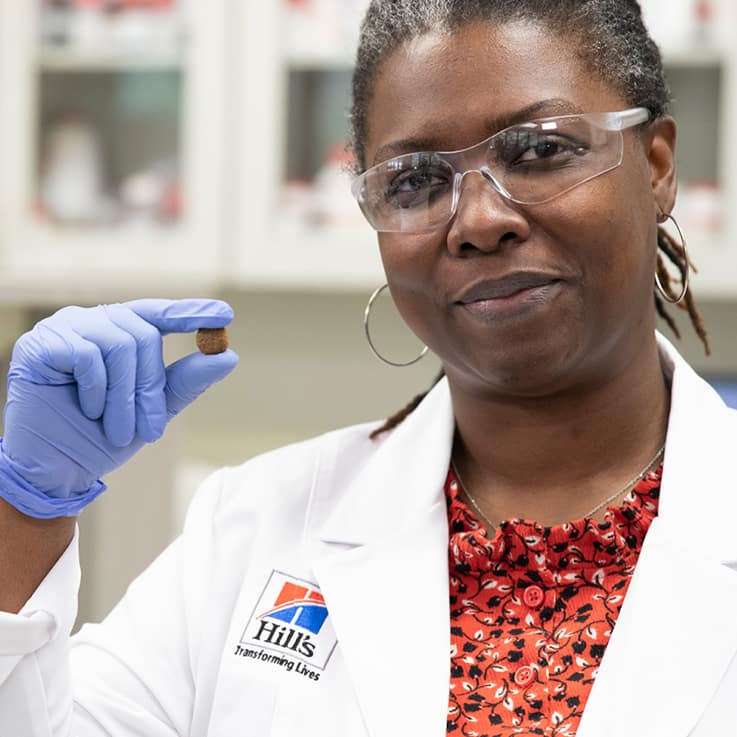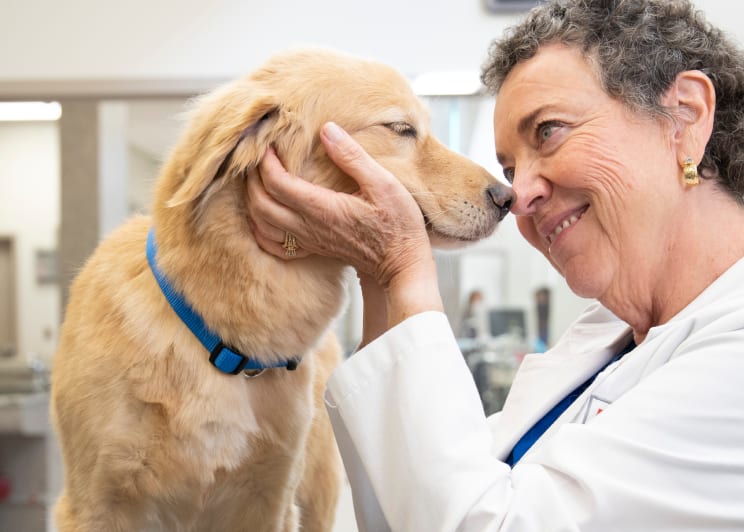
-
Find the right food for your pet
Take this quiz to see which food may be the best for your furry friend.
Find the right food for your pet
Take this quiz to see which food may be the best for your furry friend.
Produits recommandés
Produits recommandés
-
Pour chien
Pour chat
Articles à la une
-
Find the right food for your pet
Find the right food for your pet
Nutritional support for dogs with critical illness
Nutritional support for dogs with critical illness
Managing critical illness in dogs
There are many critical illnesses, from cancer to severe viral infections like Parvovirus. All of these require careful management with nutrition. Let’s explore how to care for a dog with cancer as one example, and how — with the right care and nutrition — you can support your friend through their fight.

What are the common risk factors for dogs?
Critical illnesses can affect dogs of any breed, age, or size. However, some common risk factors can increase the likelihood of a dog developing a disease such as cancer, including:
What are the common risk factors for dogs?
Critical illnesses can affect dogs of any breed, age, or size. However, some common risk factors can increase the likelihood of a dog developing a disease such as cancer, including:
Examples of cancers in dogs
Hemangiosarcoma
A common and unfortunately deadly cancer often seen in the spleen
Mast cell tumor
Develops almost anywhere in the body but is often visible as a skin lesion
Melanoma
Aggressive skin disease that develops in the mouth, eyes or foot pads
Osteosarcoma
Most common in the bones of large dogs
Examples of cancers in dogs
Hemangiosarcoma
A common and unfortunately deadly cancer often seen in the spleen
Mast cell tumor
Develops almost anywhere in the body but is often visible as a skin lesion
Melanoma
Aggressive skin disease that develops in the mouth, eyes or foot pads
Osteosarcoma
Most common in the bones of large dogs


Nutritional support for critical illness care
Maintaining a pet’s nutrition can be a big factor in the fight against illness. Your vet is the best resource for a recommendation, but the best foods typically support some key nutrition goals:



What options might be available for your dog with cancer?
Supportive Medication
Your veterinarian may prescribe medication to help your dog with related health issues, such as digestive care, pain management, etc.
Treatment
Depending on your veterinarian’s recommendation, supportive medication, radiation, surgery, and other treatment for dogs may be considered.
Love & Care
Whether it’s a road trip, a walk in the park or snuggling on the couch, your pet’s best friend in this fight is you.
What options might be available for your dog with cancer?
Supportive Medication
Your veterinarian may prescribe medication to help your dog with related health issues, such as digestive care, pain management, etc.
Treatment
Depending on your veterinarian’s recommendation, supportive medication, radiation, surgery, and other treatment for dogs may be considered.
Love & Care
Whether it’s a road trip, a walk in the park or snuggling on the couch, your pet’s best friend in this fight is you.
Tips & resources for handling your dog’s diagnosis
Demandez du soutien
Vous aurez besoin du soutien de votre famille, de vos amis et, bien sûr, de votre vétérinaire.
Effectuez des recherches
Apprenez tout ce que vous pouvez à propos du diagnostic de votre chien pour savoir comment lui apporter les meilleurs soins.
Consultez un expert
Un expert dans la maladie de votre chien peut lui offrir des soins optimaux. Demandez à votre vétérinaire de vous recommander un spécialiste près de chez vous.
Évaluez la qualité de vie de votre chien
Si votre chien souffre d'une affection grave, il peut être utile d'évaluer sa qualité de vie. Lap of Love propose un outil dédié.
Tips & resources for handling your dog’s diagnosis
Demandez du soutien
Vous aurez besoin du soutien de votre famille, de vos amis et, bien sûr, de votre vétérinaire.
Effectuez des recherches
Apprenez tout ce que vous pouvez à propos du diagnostic de votre chien pour savoir comment lui apporter les meilleurs soins.
Consultez un expert
Un expert dans la maladie de votre chien peut lui offrir des soins optimaux. Demandez à votre vétérinaire de vous recommander un spécialiste près de chez vous.
Évaluez la qualité de vie de votre chien
Si votre chien souffre d'une affection grave, il peut être utile d'évaluer sa qualité de vie. Lap of Love propose un outil dédié.


Questions to ask your veterinary healthcare team
Here are some useful things to ask during your next vet visit:





Contact your vet if you have any questions related to restorative care.

